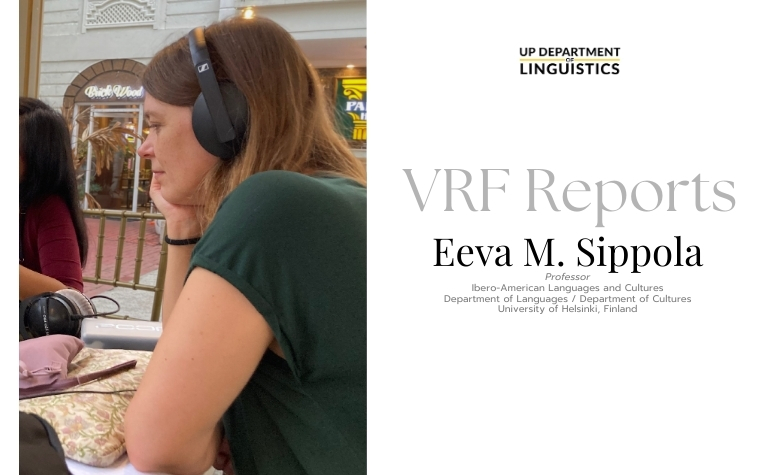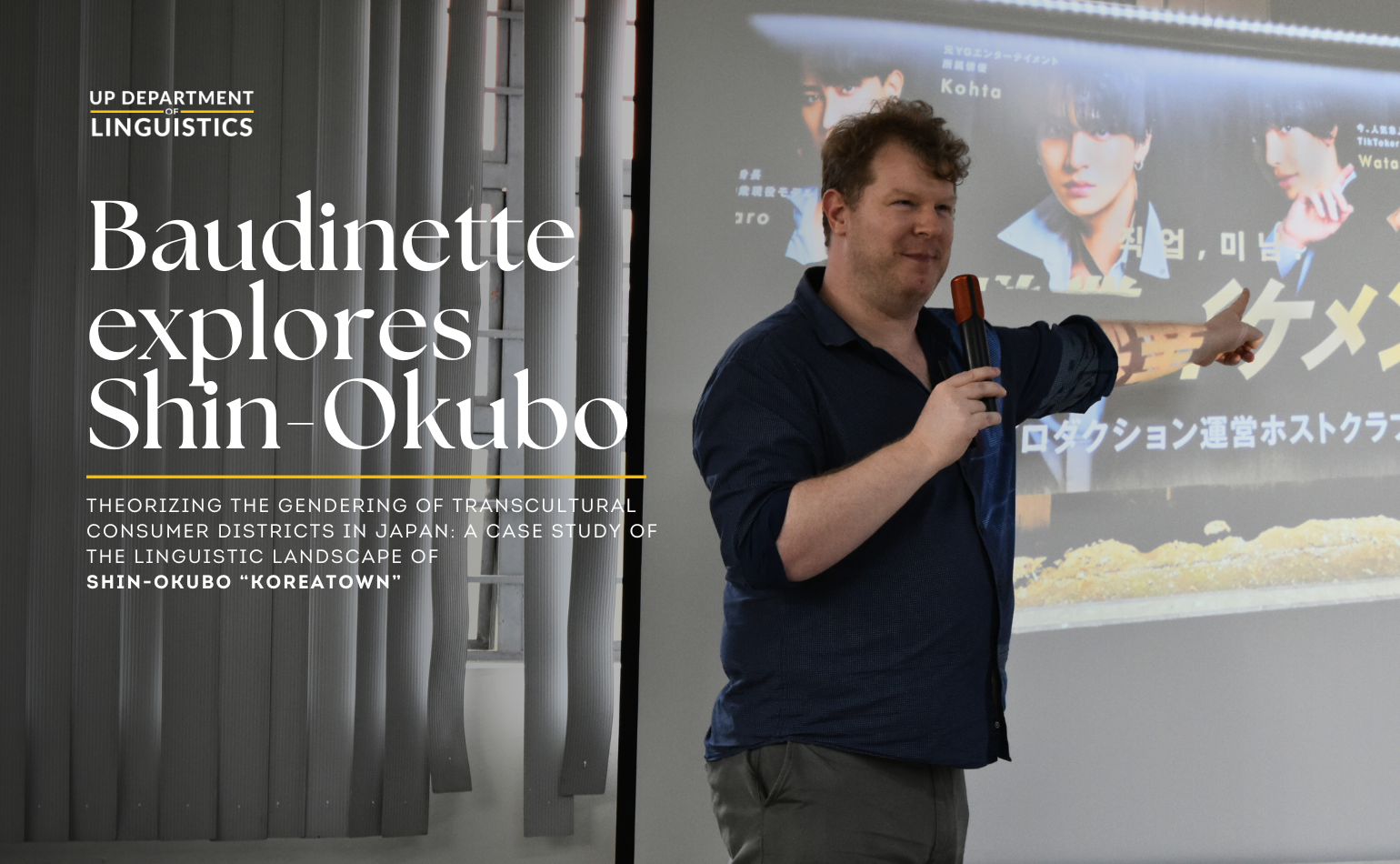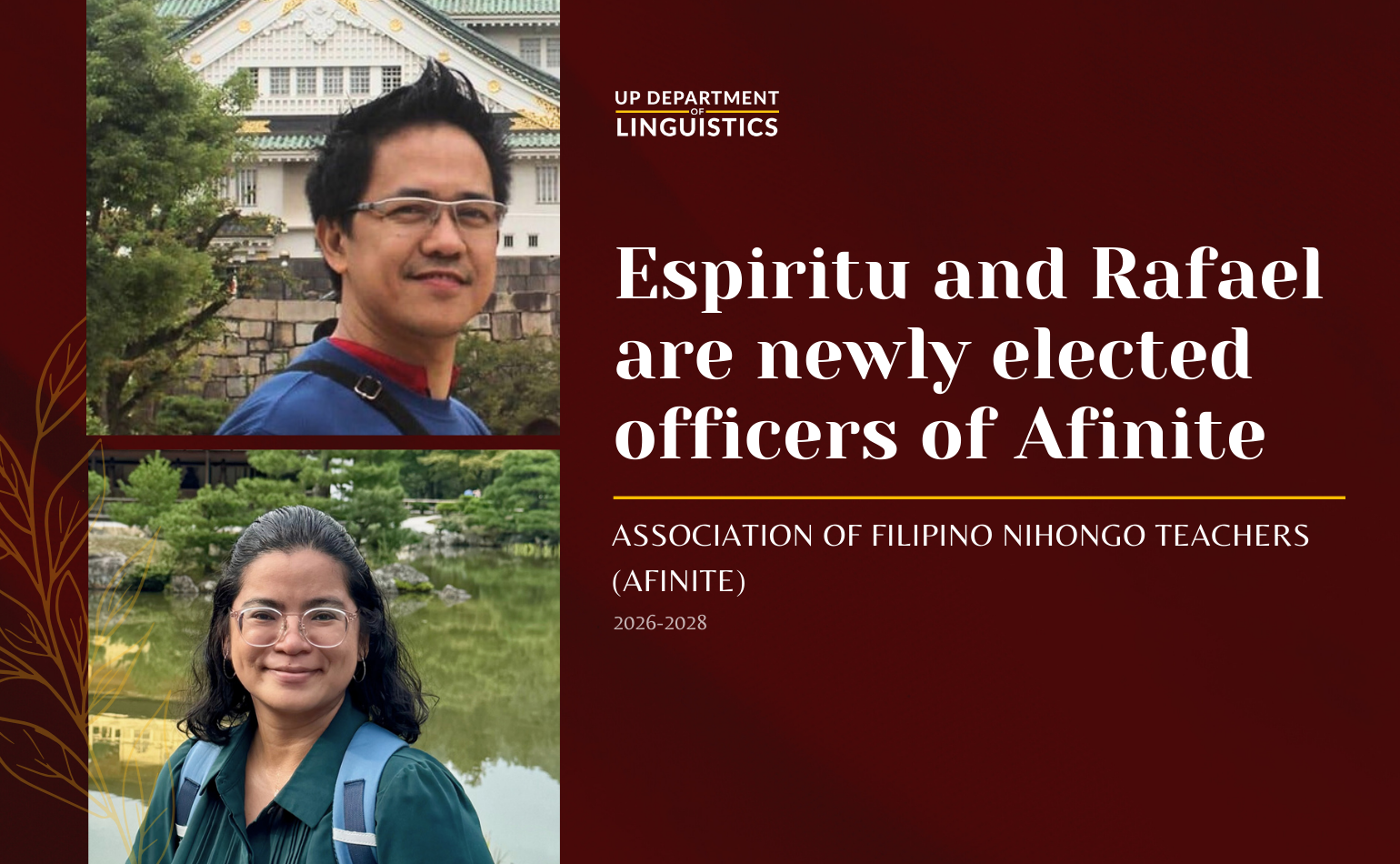
Among the recent endeavors of the Department is its collaboration with the Bugkalot communities of Nueva Vizcaya, Quirino, and Aurora in realizing their language-related efforts. The project titled “Developing a community-led documentation project for Bugkalot, Phase 1” focused on data digitization, a series of workshops, and corpus creation. Its inception brought together institutions, academics, and students of linguistics to learn from and work with community members. Bugkalot [ilk] (also known as Eģongot and Ilongot) is a language used by around 5,710 speakers, mainly in the provinces of Nueva Vizcaya, Quirino, Aurora, and Nueva Ecija. It is rated as an endangered language by Ethnologue, which means that the younger generations are not learning or using the language (Eberhard, Simons, & Fennig 2024).
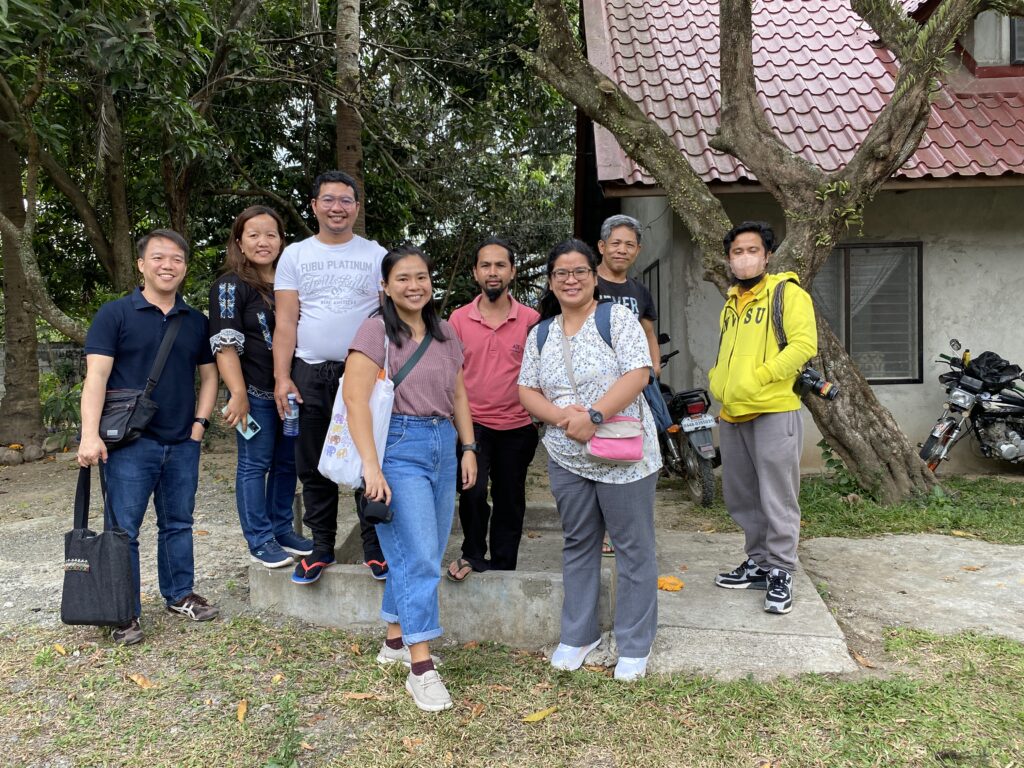
An initial consultation with the faculty of the Nueva Vizcaya State University (NVSU) and members of the Bugkalot community in Nueva Vizcaya served as an avenue to discuss the details of the project and identify its primary targets, namely training for language documentation and description, planning for orthography development, and repatriation of data from the collection housed at the Department. The scope of the project also expanded through cooperation with the Komisyon sa Wikang Filipino (KWF) and Translators Association of the Philippines (TAP), two institutions working with the Bugkalot community of Quirino.
Elders, teachers, and translators representing the communities of each province participated in the three workshops co-organized by the Department with KWF, TAP, and Department of Education (DepEd) Quirino between July 2023 and March 2024. The first workshop concentrated on training community members in orthography and phonological analysis in order to identify the significant sounds in their language, while the second one focused on grammatical analysis. The most recent workshop, convened by DepEd Quirino, aimed to finalize the orthography and discuss the next steps of the project.
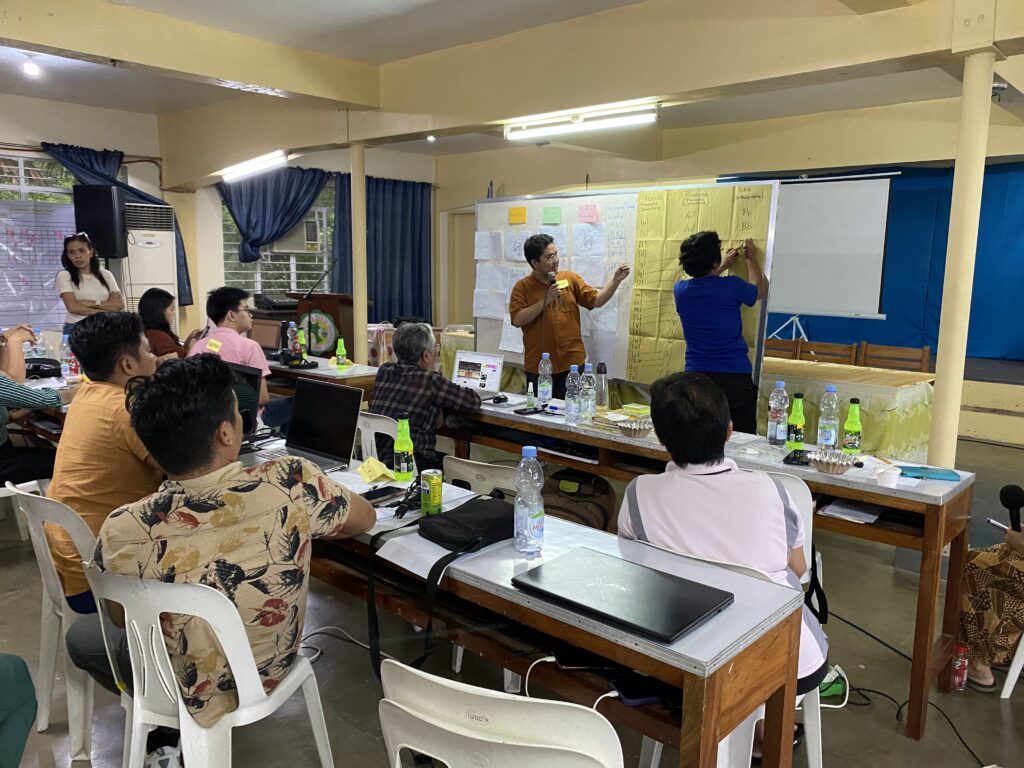
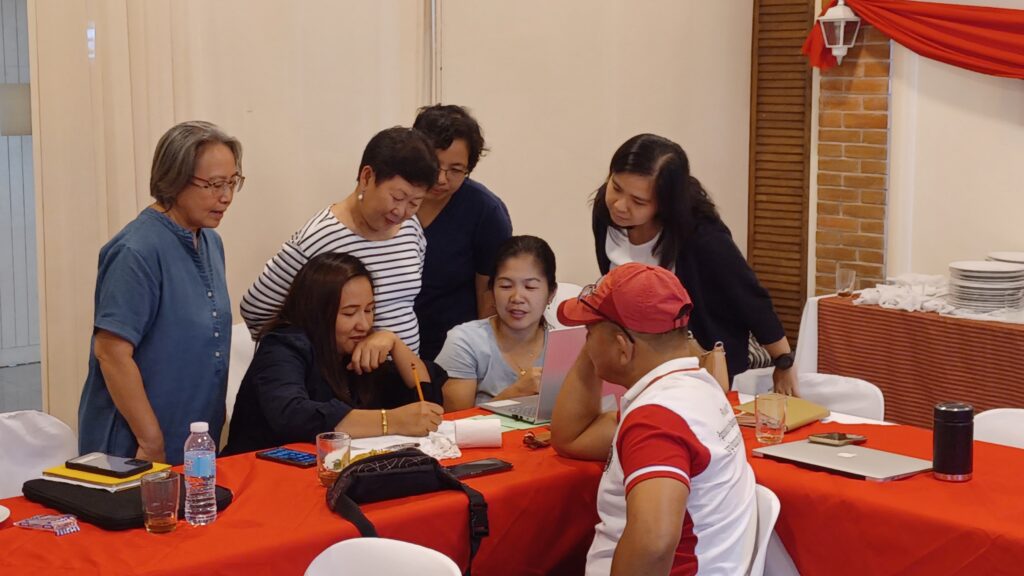
As Assoc. Prof. Maria Kristina S. Gallego, PhD noted, collaboration among the Bugkalot communities of the three provinces led to “a richer and more consultative development of the project, which will result in a unified orthography of the Bugkalot language.” She also explained that “this project is pivotal in that it was able to unite the [three provinces] towards a common goal.”
Gallego headed the UP Department of Linguistics (UP Lingg) team composed of Asst. Prof. Ria P. Rafael and MA students Patricia Anne Y. Asuncion, Jessie Rose M. Bagunu, Rolien Mark M. Balisi, John Michael Vincent S. De Pano, and Quennie Nathalie M. Dordas who were enrolled in Linguistics 225 (Field Methods in Linguistics) during the 2023 midyear term. Aside from documenting the said workshops and providing technical assistance, the UP Lingg team also developed a training module for the basics of language documentation and facilitated a workshop designed to train the Bugkalot translators of Nueva Vizcaya in audio and video recording, metadata building, and data annotation using the linguistic analysis software ELAN. This interaction was also an opportunity for the students to ask about the group’s Bible translation efforts and hear several stories regarding the Bugkalot people’s beliefs and cultural practices.
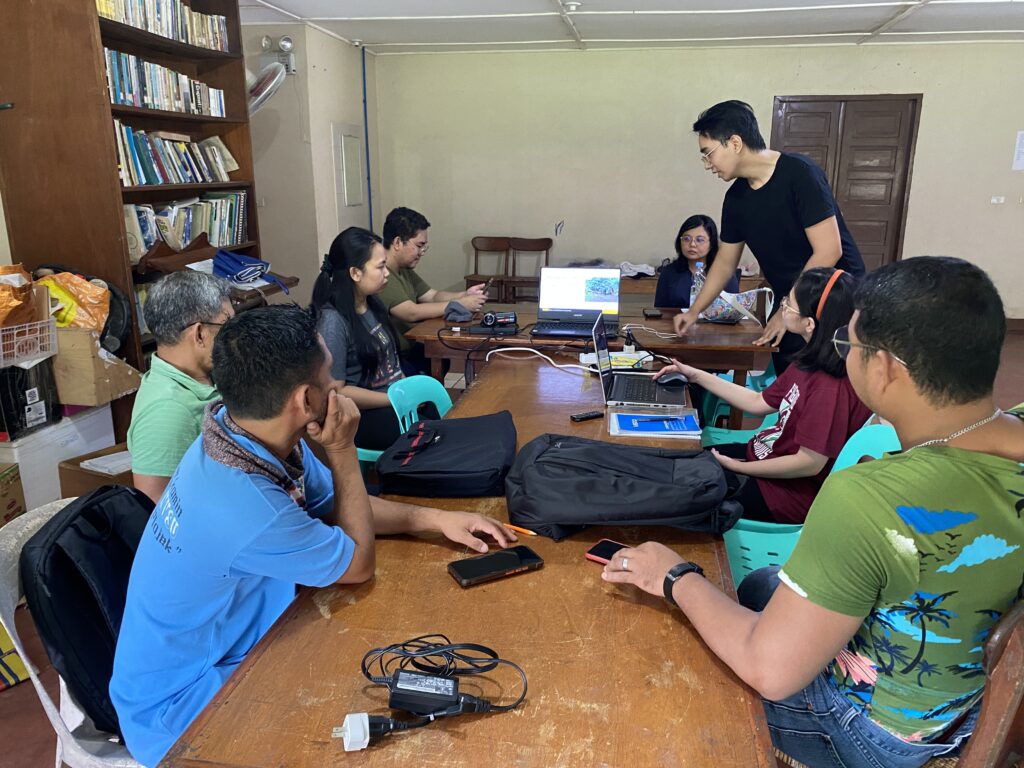
A working corpus, comprising 167 hours of digitized audio recordings from the Ernesto Constantino collection and metalinguistic commentaries recorded during the meetings and workshops, was produced throughout the project’s duration. The team also compiled an updated description of the language’s phonology and morphosyntax in the form of field notes, as well as an examination of its linguistic geography in the form of an unpublished manuscript. Furthermore, plans for the second phase of the long-term language documentation project aim to cover community training in grammatical analysis and lexicography to strengthen capacity-building, in addition to continuing work on the Bugkalot corpus.
The Bugkalot documentation project received funding from the Office of the Vice Chancellor for Research and Development (OVCRD-OEC) through an extension grant (UPD-EG No. 2322322) awarded last March 2023. It was also an offshoot of the Digital Archiving of Linguistic Fieldwork Cassette Tapes (UPD-EG No. 191917) and the Cataloguing and Digitization of Dr. Ernesto Constantino’s Archive (UPD-EG No. 212107), previous extension projects spearheaded by the Department.
Published by Patricia Ann Asuncion

